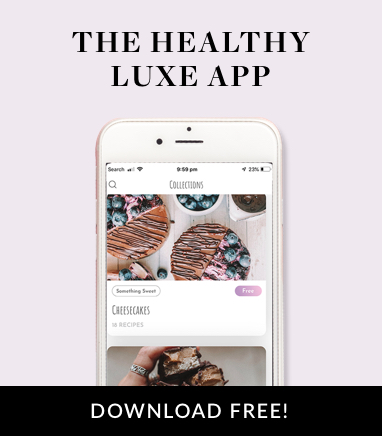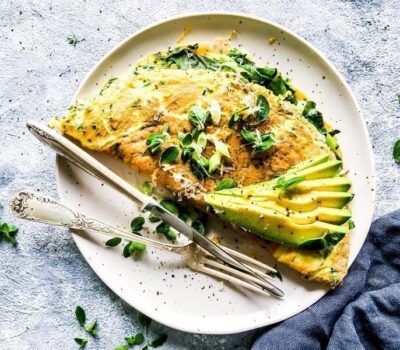New Year Reflections almost two years into the ‘Global Pandemic’. Is it time to look at a holistic approach?
As we begin another new year, and almost two years into the global pandemic which has devastated lives and communities in a variety of ways, there has been little reference to maintaining optimum health through diet and lifestyle. In fact, discussions on this topic have often been dismissed or even ridiculed, meaning that those promoting creating conditions for health have felt ostracised and undermined. Our content has always focused on taking more control of our health, both physiological and psychological, and we have continued to do this through our recipe creation and support of companies we are philosophically aligned with. However our general health and wellbeing articles have been less frequent. We recognise that this has been at a time they are perhaps most needed, and we apologise for that. I’ve spent some time reflecting on the experience of writer’s block whilst trying to make sense of the world, and how that can be overcome this year.
Having been asked a number of times to explain naturopathy, along with other questions such as the differences between naturopathy and nutrition, I found myself thinking abound what it means to be naturopath / nutritionist in the 21st century, in the age of social media and particularly in the time of a health crisis, such as we have been experiencing for the past two years.
The following discussion is an attempt to answer this question, in some detail, referring along the way to my own journey in this field that I am so passionate about. This includes some of the frustrations experienced and the commitment required to continue with this work. Some of the brief history woven within the discussion may provide insight into the current surreal situation we now find ourselves in.
In its purest form, Naturopathy is a philosophy based on principles of holism, vitalism and interconnectedness within ourselves, with others and with our environment. These principles originated thousands of years ago and draw on the wisdom of ancient civilisations, across many cultures, who had a much more harmonious relationship with nature than we do today. Vitalism describes the body’s innate ability to heal and to thrive, given the right conditions. Most alternative / complementary medicine practitioners seek to help create these conditions so that the individual is able to access their own innate wisdom, coherence and healing capacity.
We have written many times about these concepts in the past. In summary, the most basic conditions required for health include clean air, water, food, sunshine, adequate nutrients, movement, laughter, playfulness, healthy relationships and community, and a sense of purpose and belonging. It has therefore been heartbreaking to watch these essential requirements for life taken away. As a society we have been locked up, unable to see friends and family, even when they are ill, and deprived of clean air and sunshine, told not to hug, sing or dance. In many cases this had exacerbated loneliness, divided communities, severed relationships and perpetuated fear, along with the physiological and psychological consequences of perpetual fear. As a mental health practitioner and trauma counsellor, I can attest to the fact that the toll has been immeasurable. I am sure my own despair around this has contributed to the writer’s block I’ve experienced.
Also fundamental to teachings of naturopathic philosophy are the writings of Greek physician, Hippocrates, best known for his quote “Let Food be Thy Medicine and Medicine be Thy Food”. Nutrition, therefore, is an integral part of naturopathy, as is herbal medicine. In contrast, the lecturers who were medical doctors when I did my studies, stated that nutrition made up approximately 6 – 8 hours of their entire medical degree. Yet, The Lancet published a paper that poor dietary habits were associated with a range of chronic diseases and can potentially be a major contributor to Non Communicable Disease (NCD) mortality in all countries worldwide, which I think is evidence that diet and nutrition is quite important. In another article published in Journal of Alternative and Complementary Medicine, it was concluded in a meta-analysis reviewing 33 published studies, that research in whole-system, multi-modality naturopathic medicine showed efficacy in the treatment of cardiovascular disease, musculoskeletal pain, type 2 diabetes, polycystic ovarian syndrome, depression, anxiety, and a range of complex chronic conditions.
As recently as November, 2021, a study published in Cell Metabolism concluded that the study demonstrated the protective role of diet and specific combinations of proteins, fats and carbohydrates against ageing, obesity, heart disease, immune dysfunction and risk of metabolic diseases, such as type 2 diabetes. This seems to be demonstrated over and over again, and yet, the author of the paper also said: there has been a huge effort to discover drugs aimed at improving metabolic health and ageing without requiring a change in diet.
Whilst there is no denying that there have been extraordinary medical advances, we seem to turn a blind eye to the many catastrophic impacts of modern drugs, for example thalidomide and opioids. Another example is the overuse of antibiotics which has led to a population with dysbiosis (gut flora imbalance) causing a multitude of health conditions. According to a study published in 2013 in the Journal of the Mayo Clinical Proceedings (2013), 70% of Americans are on at least one prescription drug, 50% take two and 20% take more than five. Antibiotics, antidepressants and opioids are the most commonly prescribed.
The CDC (Centers for Disease Control and Prevention) website currently states that is is estimated that 60% of adults in America have a chronic disease and 40% have two or more chronic diseases. One of the only consistent messages we have received throughout this pandemic is that those with co-morbidites (chronic disease) are at much higher risk for serious illness and death. I had hoped that this crisis may mean that people took more care of their health, and my understanding is that some have, with astonishing positive results, although this is anecdotal.
So, getting to the paradox part…. the definition of paradox is “a seemingly absurd or contradictory statement or proposition which when investigated may prove to be well founded or true”. This relates to naturopathy in the sense that any focus of maintaining health has been ridiculed in the context of the current crisis, thus widely considered absurd. Some integrative doctors have even been investigated for suggesting such measures as ensuring Vitamin D levels are sufficient, despite multiple studies showing the benefits of this and other nutrients in reducing the risk for severe disease.
The relegation of naturopathy to the realms of ‘quackery’ began a long time ago, with a major upheaval occurring early in the 20th century, when The American Medical Association, assisted by John Rockefeller and Andrew Carnegie, appointed Abraham Flexner to review medical schools across the US and Canada. In summary, the ‘Flexner Report’ was produced and as a result of this, many health supporting occupations, such as naturopathy, homeopathy, osteopathy, acupuncture, nutrition, psychology and many more were discredited, in favour of exclusively biomedical institutions. Naturopathic schools and students greatly diminished in number and continued to be undermined, sometimes outlawed.
Historically, for hundreds of years, traditional healers used food and medicine to treat illness, and often no money was exchanged. This changed dramatically after the purge driven by the Flexner Report, making way for what was termed “scientific medicine” which was highly profitable. There was an advancement of pharmaceutical research via enormous funding by the Rockefeller Foundation, which also effectively transformed nutrition, herbal medicine and other health maintaining disciplines, to “unscientific” fringe therapies. Society was gradually trained to believe that drugs were the only way to cure disease. To this day, as stated above, doctors have only a few hours of nutritional training in their entire medical degree. At the same time, prescription medicines were listed as the third leading cause of death, after heart disease and cancer in pub med published journal articles.
Having studied for six years at the premier naturopathic college in Australia at the time, I felt very privileged to have learnt from highly experienced naturopaths, medical doctors and pharmacists, whilst also being acutely aware that this study was not taken very seriously. I was therefore thrilled when, towards the end of my studies, an opportunity arose to upgrade this qualification to University level. The units I had studied, across a broad range of modalities met the requisite criteria and with the addition of further study at Charles Sturt University, which included pathophysiology, nutritional biochemistry, immunology and microbiology. I ultimately completed a BHSc (Complementary Medicine). Finally there would be some credibility for this somewhat ‘fringe’ profession I thought…. naively.
Not long after I gained this qualification, Australia saw one of the biggest product recalls in history. This occurred after a number of people were hospitalised after taking a travel sickness drug, called travacalm (Hyoscine hydrobromide), and experiencing adverse effects due to the dosage exceeding what the label had indicated. It was discovered that the company responsible for tableting these also tableted a number of complementary medicines such as vitamins and herbal preparations. This made widespread news headlines and was talk back show fodder for weeks. It was rarely mentioned that the adverse reaction was caused by a pharmaceutical drug (not a complementary medicine) but repeatedly claimed that “complementary medicines were dangerous”. The collateral damage was that many reputable businesses lost their livelihoods, through no fault of their own, but a combination of poor practices by a manufacturing company (Pan), over zealous actions of the TGA (Therapeutic Goods Association), later forced to make huge compensation payouts, albeit insufficient to correct damage done, and negligent reporting by the media. I can still remember how deflated I felt at this grossly erroneous portrayal.
In 2012, The Sydney Morning Herald published a story titled “Push to Rid Universities of Alternative Medicine”, led by a group known as ‘Friends of Medicine in Science’, upset about the rise of alternative medicine, who were not only attempting to remove naturopathy and other studies from the University Course list but were also campaigning for the Federal Government and health insurance providers to stop funding complementary and alternative medicine. There was robust opposition to this by a group of highly esteemed, critically thinking doctors, who argued that “the group [Friends of Science in Medicine] was trying to suppress all approaches to healthcare that they do not understand, rather than contributing to fair and open debate in line with core values and practices of science and medicine”. They also said “there was extensive evidence for some complementary therapies including herbal products, nutritional supplements and meditation”. Importantly, it was also stated that ”It is important that those who seek to be friends of science do not inadvertently become its enemies. We call on the members of FSM to revise their tactics and instead support open, respectful dialogue’’. The President of the Friends of Science in Medicine acknowledged that not all western medicine interventions had an evidence base, but that they were searching for evidence, inferring that integrative, alternative and complementary medicine practitioners and scientists were not. Ultimately, the powerful medical lobby were successful in largely reducing naturopathic studies from universities and removing rebates for such therapies from private health insurers. It seemed like history repeating with the rising popularity of dietary and other health promoting methods.
“Unthinking respect for authority is the greatest enemy of truth” – Einstein

The mention of the word ‘science’ today commands an almost unnatural, unquestioning reverence, along with automatic acceptance of whatever is said in the same sentence. Yet, history has shown that scientists often disagree and that more sophisticated methodology often disproves previously accepted science. Instead of working together to find common ground or ways in which their theories could be developed, these otherwise intelligent people can often descend into scathing attack on those with another theory, hypothesis or perspective. Unfortunately in some circumstances there is a more nefarious explanation for opposing scientific views, involving conflict of interests and manipulation of data, best illustrated by the tobacco industry story where in the 1950’s, in response to compelling evidence that cigarette smoking had deleterious health consequences, a “Tobacco Industry Research Committee” was set up. This committee intentionally sought out scientists who were both vocal and skeptical of the link between smoking and disease. Distortion of scientific data for commercial gain has been well documented since then. Another example is the controversy surrounding the use of Glyphosate (more commonly known as ‘Round Up’), previously owned by Monsanto, now owned by the pharmaceutical company, Bayer.
The consistent assault on all forms of natural medicine has its consequences. I know of many practitioners who have given up practice, having been worn down by the contempt. The removal of naturopathy from health funds undermines people’s right to choose and effectively means that those seeking to take a more pro active role in their health are being penalised. Unfortunately this means that naturopathic care will increasingly only available to those of higher incomes. Something so fundamental should be accessible to everyone.
Nevertheless, I remain optimistic of a future where we can rise above the criticism and engage in respectful debate, flexible thinking, sharing of information and collaborate towards better health for all, a harmonious coalescence of mind, body and spirit for the individual and higher vibration for the planet.
Science is continually evolving, science that can’t be questioned takes away choice, critical thinking and freedom of expression. We hope that something in this reflection will this bring new possibilities, questions and above all, a way forward to a healthier, more connected and fulfilling life, a life filled with love and joy, healthy relationships and communities.
In general there has been much less talk of resolutions this year, having had any plans and aspirations annihilated for the previous two years in a row. Our choices have not always been our own and making plans has all too frequently led to disappointment. This means that finding where there are possibilities, choices and where there is room to move is critical…. finding ways to restore, recover, renew and unite.
We would like to wish everyone hope and a return to humanity for 2022, healing of our deepest wounds, a restoration of kindness and respect for others in the collective consciousness and reconciliation of our precious relationships which may have been fraught with tension over these past two years.
Written by Naturopath, Nutritionist, Psychotherapist and Co-Founder of Healthy Luxe, Jennifer Murrant.







